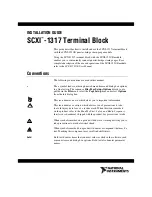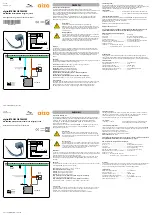
MAN1029-10-EN_EXL10_XL10P_UM
J u l y 6 , 2 0 2 2
P a g e 23 | 195
CHAPTER 4:
ELECTRICAL INSTALLATION
NOTE: The datasheets are the first documents to refer to for model-specific information related to
EXL10/XL10 PRIME OCS models such as pin-outs, jumper settings, and other key installation
information
. Visit the Horner websites to obtain datasheets, user documentation, and updates.
North America
Europe
http://www.hornerautomation.eu
4.1
Grounding Definition
Ground:
The term
ground
is defined as a conductive connection between a circuit or piece of equipment
and the earth. Grounds are fundamentally used to protect an application from harmful interference causing
either physical damage such as by lightning or voltage transients or from circuit disruption often caused by
radio frequency interference (RFI). Grounding is also for the safety of the user.
4.2
Ground Specifications
Ideally, a ground resistance measurement from equipment to earth ground is 0
Ω
. In reality it typically is
higher. The U.S. National Electrical Code (NEC) states the resistance to ground shall not exceed 25
Ω
. Horner
APG recommends less than 15
Ω
resistance from our equipment to ground. Resistance greater than 25
Ω
can
cause undesirable or harmful interference to the device.















































